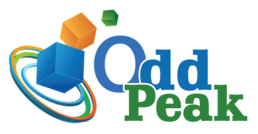How Can Exercising Assist Me in Maintaining Sobriety?
Exercise is beneficial to everyone, but it is especially beneficial to those who are attempting to quit drinking. Some of the benefits are as follows:
- It helps you to feel better mentally.
Depression and anxiety are frequently associated with addiction. Endorphins are released throughout exercise and can help you feel happier and more positive. Physical activity may also improve your learning, reasoning, and judgment abilities, all of which can aid you in your sober path. It also aids in the formation of new nerve connections in your brain, making the process of being sober go more smoothly.
- It aids in the development of a routine.
Workouts should be scheduled to coincide with your weak spots. If you tend to drink late at night, for example, plan to exercise first thing in the morning so you’re less tempted to stay up late and drink late the night before. If you have a problem with happy hour, skip it and exercise immediately after work.
- It aids with emotional management.
You may have intense emotions during your addiction recovery, which can feel overpowering at times. You might be furious, annoyed, sad, or perplexed, or a combination of these emotions. This could be a side effect of the recovery process, or you may begin to feel the feelings that you were masking with your substance usage. Exercise might assist you in dealing with them in a constructive manner.
- It improves your self-confidence.
When you achieve a fitness goal, you demonstrate that you are capable of overcoming challenges. This may lead you to recognize that you, too, are capable of achieving sobriety. When you witness the benefits of a fitness program, you may be inspired to make additional changes in your life.
What Exercises Engage the Body and the Mind?
With so many options, you may need to try a few to find the ones that appeal to you the most, while also working within whatever physical limitations you may have. But there are two in particular that focus on both your mind and body:
- Tai Chi
Tai chi is an ancient Chinese form of exercise. Many people have recovered from addiction after practicing mindfulness. Tai chi is a moderate type of exercise that incorporates mindfulness. It entails gradual movements and allows you to think more clearly and quietly, allowing you to make better decisions during your rehabilitation.
- Yoga.
Stress can be reduced by practicing this exercise. It can also help you become more conscious of yourself and mindful of your surroundings, which can help you avoid cravings. Stress chemicals like cortisol and adrenaline are reduced when you practice yoga. This is crucial, particularly in your first year of sobriety, because stress will tempt you to abandon your recovery.
Exercise as a Drug Addiction Treatment
While regular exercise cannot be the only treatment for drug and alcohol addiction, research has shown that it can help. Exercise has been demonstrated to have protective effects in addiction recovery when paired with other proven kinds of addiction treatment, which are linked to physical activity’s neurobiological and behavioral results. Mallard Lake Detox Center’s addiction recovery programs blend traditional and holistic therapies to provide a complete addiction treatment program for those who are battling with substance misuse. For further information on treatment alternatives, please contact us right away.


